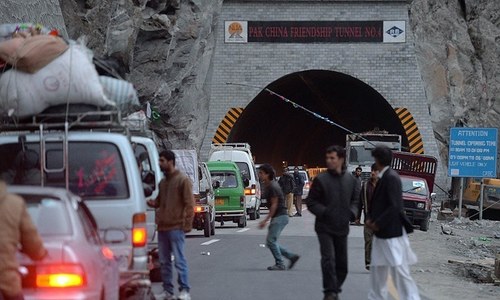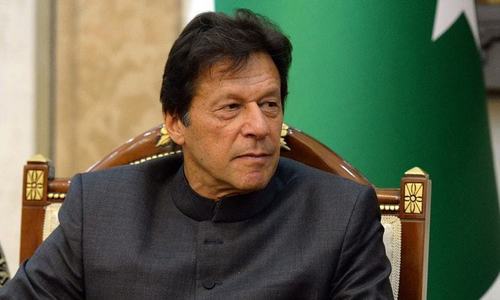THE feel-good story of the government appears struggling to move beyond economic stabilisation. The narrative continues to revolve around “reduced twin deficits, restored investor confidence and revenue growth”. The year 2020 is officially described as the year of economic revival and job creation.
On ground, there are hardly any convincing signs of an economic rebound. Double-digit inflation is breaking the backbone of the majority, job creation remains a dream and public confidence is at the lowest ebb.
The government’s economic czars take credit for around 17 per cent revenue growth in July-December despite missed targets. The collection at Rs2.080 trillion is almost Rs288 billion less than the half-yearly target.
While the government and its backers in the lending agencies attribute revenue growth to policy measures in sales tax and direct taxes, a major part of this flow is defined by an impact of about 3pc economic growth and 12pc inflation — an automatic revenue growth phenomenon. That leaves just 2pc that may have come from administrative efforts or policy measures.
Also, the refuge behind import compression for revenue loss in the first half of the fiscal year appears deceptive. The revenue target was set by the same authorities on the basis of policy measures they announced in the budget. Imports did not fail for external reasons. Let us not forget that the budgeted target of Rs5.55tr was built on 45pc revenue growth — almost twice the size actually achieved.
A survey by global market research firm Ipsos revealed that the trust of the people in Pakistan’s economy has weakened
The government claims it “inherited an economy in a major balance-of-payments crisis which led to high inflation and low growth but immediate actions by the government helped stabilise the economy and reduce the unsustainable fiscal and trade deficits, leading to the restoration of business confidence”.
A key indicator of domestic business confidence in Pakistan is considered to be credit to the private sector. This declined to a paltry Rs117bn in the six months ending December compared to Rs500bn a year ago, showing a drop of almost 77pc. An interest rate of around 15pc could hardly be considered an incentive for the private sector to borrow for investment.
SBP’s policy rate of 13.25pc has nevertheless brought in flocks of portfolio investors with around $1.4bn, which is described by most private economists as “hot money” that can flow in like a hurricane and fly out like a hurricane.
Interestingly, the government repeatedly quotes Moody’s report released in December to claim improvement in the business environment even though the credit rating agency did not upgrade Pakistan’s rating but expected outlook to be “stable” on the back of the IMF programme instead of negative outlook before the IMF bailout.
Last week, a survey by global market research firm Ipsos revealed that trust of the people in Pakistan’s economy has weakened. A vast majority of Pakistanis were less comfortable in December this year about making investments than a year ago and were worried about the current direction the country was moving, including inflation, unemployment and higher taxes. The survey found that 91pc people were less comfortable to buy a home or a car, whereas 31pc saw someone known to them as losing job over the past one year.
More recently, Fitch Ratings affirmed Pakistan’s long-term foreign currency issuer default rating at ‘B-negative’ with a stable outlook. In its report released last week, it noted weak external and fiscal positions and a slowing economy. It identified high debt-to-GDP ratio, economic growth rate at 2.8pc, fiscal deficit at an elevated 7.9pc level, high inflation, high interest payments and weaker revenue growth as key weaknesses.
These rating agencies do not see an economic turnaround this year. Fitch said tighter macroeconomic policies were further slowing down GDP growth, estimated at 2.8pc in the current fiscal year and 3.4pc by the next year. The growth was 3.3pc in the previous fiscal year.
“Inflation has also continued to rise sharply from the cost pass-through of the currency depreciation and increases in energy tariffs,” Fitch said.
Besides, official data suggests a decline of almost 6pc in the large-scale manufacturing (LSM) output in the first half of the current fiscal year. The production of petroleum products dropped by more than 12pc year-on-year in the July-December period.
Moreover, the country’s petroleum consumption is on the reverse gear when compared to 5-7pc annual average growth of past many years, which clearly indicated lower economic activities. The production of petrol and high-speed diesel — the two most common transport fuels — was down by more than 13pc.
The LSM index of key industrial goods maintained by the Ministry of Industries fell 5.6pc in output in July-December. The decline was more pronounced in the auto sector: the sales of trucks plummeted 48pc to 1,691 units, of buses by 32pc to 373 units, of jeeps by 53pc to 1,779 units, of pickups by 48pc to 6,634 units, of two/three wheelers by 12pc to 799,820 units, and of tractors by 38pc to 15,219 units.
The LSM index of 65 important consumer items was also lower by 5.2pc, showing clear signs of people’s falling purchasing power. The items ranged from cooking oil to soft drinks and from blankets to toilet soaps and clothes and from fans to cycles and medicines.
Exports were higher by 3.14pc in July-December, though a worrying sign was a drop of almost 4pc in December.
Published in Dawn, The Business and Finance Weekly, January 20th, 2020














































